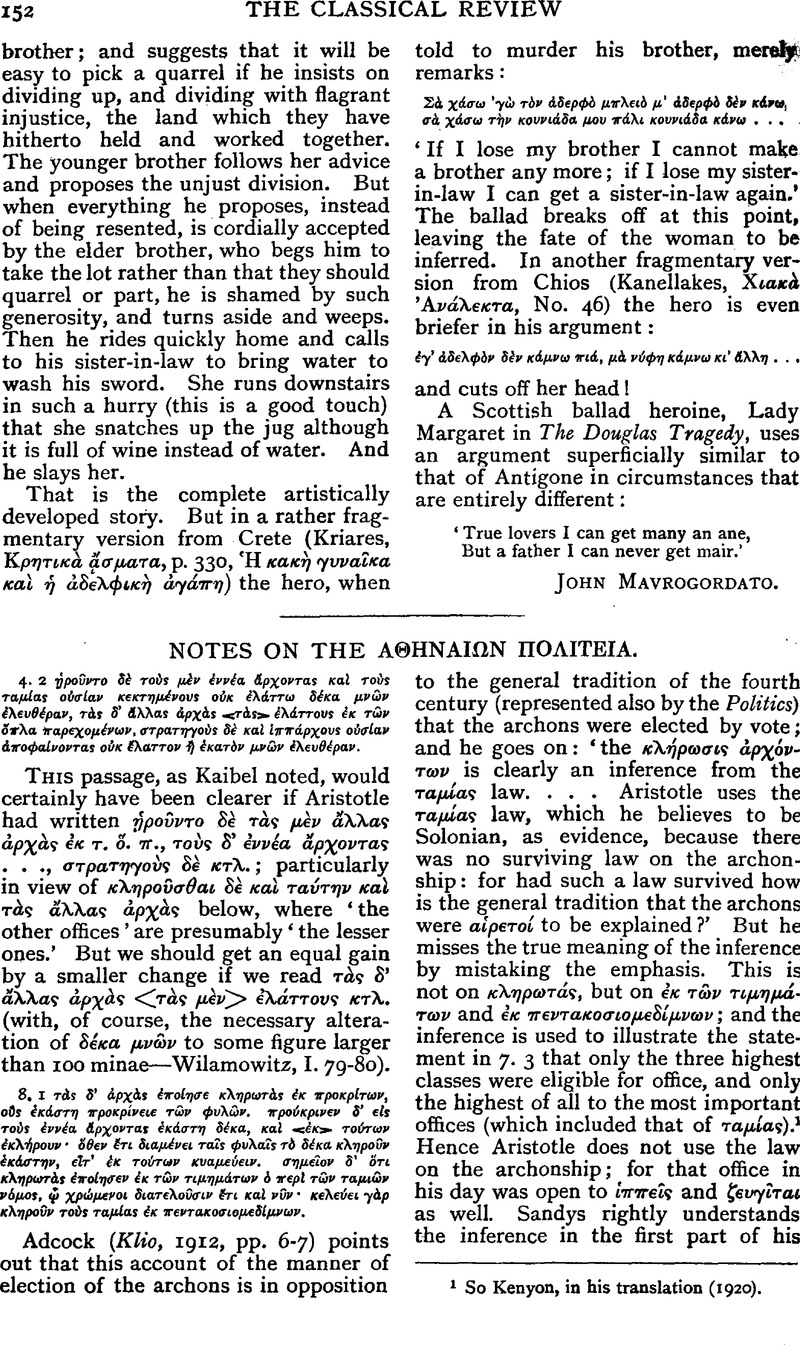No CrossRef data available.
Published online by Cambridge University Press: 27 October 2009

page 152 note 1 So Kenyon, in his translation (1920).
page 153 note 1 It is wrong to say (with Lehmann-Haupt, Klio, VI. 304 ff.) that all Solon's regulations involving election ⋯κ προκρ⋯των were necessarily cancelled when the phylae were raised from four to ten, and that in consequence Aristotle could not have inferred the Solonian archonship law from that in force in his own day. The ταμ⋯ας law, he says, survived because there was direct election to this office, without πρ⋯κρισις; Cleisthenes raised the number of ταμ⋯αι from four to ten, thus leaving the wording of the law unchanged—![]() . Still more easily could the wording of a law involving πρ⋯κρισις remain unchanged when the number of magistrates remained the same:
. Still more easily could the wording of a law involving πρ⋯κρισις remain unchanged when the number of magistrates remained the same: ![]() .
.
page 153 note 2 For this reason I doubt whether the passage in Or. XXIV. 14 (Keil),  , is a reference to the elegiacs in Ath. Pol. 12. 1, though it may be a summary of another part of the same poem. If I am right, then Aristides does not get all his knowledge of Solon from the Ath. Pol., as Platt supposed, or we must assume a lacuna in the latter. The v.l. χρησμ⋯ν λ⋯γοντας in Aristides for χρειο⋯ς φυγ⋯ντας in l. 11 of this poem (see Adam on Rep. VIII. 552D) also points in the same direction.
, is a reference to the elegiacs in Ath. Pol. 12. 1, though it may be a summary of another part of the same poem. If I am right, then Aristides does not get all his knowledge of Solon from the Ath. Pol., as Platt supposed, or we must assume a lacuna in the latter. The v.l. χρησμ⋯ν λ⋯γοντας in Aristides for χρειο⋯ς φυγ⋯ντας in l. 11 of this poem (see Adam on Rep. VIII. 552D) also points in the same direction.